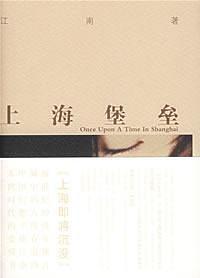Shanghai Fortress
上海堡垒
China, 2019, colour, 2.35:1, 3-D, 106 mins.
Director: Teng Huatao 滕华涛.
Rating: 3/10.
A laughably inept sci-fi blockbuster about an aggressive alien mothership is a mess on every level.
Shanghai, c. AD 2035. Earth has benefited massively from a super-energy material that was first brought back by a Chinese spaceship. Known as Xianteng 仙藤 (“immortal vine”), it has reduced mankind’s dependance on petroleum and coal. However, it has also attracted attention from others, and during the past five years an alien mothership has been attacking major cities that use Xianteng and stealing the material. New York, Tokyo, Moscow and New Delhi have all been destroyed; Shanghai is Earth’s last surviving major metropolis. The leaders of 97 countries have met in Shanghai to set up the United Nations Defence Commission (UNDC), to share resources to defend the planet. Part of UNDC’s defence force is the Grey Eagle Squad, led by captain Pan Hantian (Wang Sen) and including four young flyers: Jiang Yang (Lu Han), the most talented overall; Zeng Yu (Wang Gongliang), the one with the quickest reactions; and Lu Yiyi (Sun Jialing), the best data analyst. Since military college in Beijing, Jiang Yang has held a torch for his instructor, Lin Lan (Shu Qi), now commander of Shanghai’s Fortress & Shield Command Centre; but he’s too shy to declare his love, especially as he thinks her boyfriend is the older and more charismatic Yang Jiannan (Gao Yixiang), chief director of the giant Shanghai Cannon, the city’s ultimate defence weapon. As the alien mothership arrives over Shanghai, Lin Lan sends in UNDC’s vast fleet of drone fighters as well as using the Grey Eagle Squad. Unfortunately, Jiang Yang is away from the comand centre seeing off a friend; but he helps to save a young girl in the street as well as to fight off an Annihilator robot. The alien mothership temporarily withdraws. Yang Jiannan believes the Shanghai Cannon can exploit a weakness discovered in the alien mothership. But its use is over-ruled by the command centre’s commander-in-chief, Shao Yiyun (Shi Liang), as the energy required would seriously deplete the city’s reserves of Xianteng, accelerating the material’s decline in self-generation and weakening the city’s defence shield. The aliens launch a fake attack to deplete the city’s Xianteng reserves and the command centre is attacked by Annihilators. The UNDC committee orders the Shanghai Cannon to be used, and it seemingly destroys the alien mothership, keeping the city’s shield intact. Pan Hantian and his squad relax at a night club, and Lu Yiyi comforts the still lovelorn Jiang Yang. Yang Jiannan is promoted to brigadier-general. Cracks start appearing in the city’s streets, and the city’s shield starts to weaken; just when it seems to have been repaired, Annihilators penetrate the command centre. Amid all the death and chaos, Shao Yiyun comes up with a bold, final plan to defeat the aliens.
REVIEW
The future of the human race rests with three millennial fighter pilots in Shanghai Fortress 上海堡垒, a laughably inept sci-fi blockbuster about an aggressive alien mothership that scores low on every level. Monumentally miscast in its two leading roles, kitted out with a plot and dialogue that sounds computer-generated, and uncritically taking on board every corny, big-budget cliche handed down by Hollywood, it’s even more of a disastrous disaster movie coming on the heels of The Wandering Earth 流浪地球 (2019), which at least did a decent job of entertainment, if little original, on its way to earning a giant RMB4.6 billion over Chinese New Year. Six years in production and reportedly costing RMB360 million, Fortress has limped to just over RMB120 million at the Mainland box office and caused collywobbles in the industry. While other sci-fi spectacles like Pathfinder 拓星者 (astronauts stranded on a planet, dir. Zhang Xiaobei 张小北) and Warriors of Future (humans vs aliens, Hong Kong’s Wu Xuanhui 吴炫辉) wait nervously in the wings, it’s now a moot point if the daddy of them all, The Three-Body Problem 三体 (Zhang Panpan 张番番), shot back in 2015, will ever see the light of day.
 To put it mildly, the choice of Teng Huatao 滕华涛 as director was a questionable decision. Teng, who’s in his late 40s, is largely known for romances (Sky of Love 爱,断了线 , 2003; Love Is Not Blind 失恋33天, 2011) and TV drama series, and had no experience with either action movies or productions of this scale. Though there is a love story at the centre of the original 2009 novel by Jiang Nan 江南 – known as Once upon a Time in Shanghai in English (see book cover, left) – in the film this has been pushed aside by so much spectacle that it’s been rendered even more inconsequential. Given the movie’s suspiciously short running time of 90-odd minutes (excluding credits), some material from the romance thread may have been ditched by senior editor Lin An’er 林安儿 [Angie Lam] – a well-known Hong Kong “fixer” – to let the action (hopefully) carry the movie.
To put it mildly, the choice of Teng Huatao 滕华涛 as director was a questionable decision. Teng, who’s in his late 40s, is largely known for romances (Sky of Love 爱,断了线 , 2003; Love Is Not Blind 失恋33天, 2011) and TV drama series, and had no experience with either action movies or productions of this scale. Though there is a love story at the centre of the original 2009 novel by Jiang Nan 江南 – known as Once upon a Time in Shanghai in English (see book cover, left) – in the film this has been pushed aside by so much spectacle that it’s been rendered even more inconsequential. Given the movie’s suspiciously short running time of 90-odd minutes (excluding credits), some material from the romance thread may have been ditched by senior editor Lin An’er 林安儿 [Angie Lam] – a well-known Hong Kong “fixer” – to let the action (hopefully) carry the movie.
Going by what survives of the subplot on screen, it could hardly have been expected to work. As the lovelorn millennial with a crush on his boss, Mainland ex-boybander Lu Han 鹿晗, 29, is as weedy a presence as he’s been in his other movies (e.g. Time Raiders 盗墓笔记, 2016) and is seemingly only there to draw a young audience; opposite Lu, as the beautiful superior who’s seemingly unaware of the infatuation, Taiwan actress Shu Qi 舒淇, 43, usually more at home in lighter roles, generates zero on-screen chemistry with her younger co-star. The corny dialogue doesn’t help; but even away from Lu, Shu isn’t remotely believable as a commander of the city’s defence forces, despite trying to look as stern as possible when issuing orders from her high-tech console.
Among the rest of the cast, veteran character actor Shi Liang 石凉 has some genuine screen heft as the commander-in-chief; Taiwan Canadian actor-model Gao Yixiang 高以翔 (Love Is a Broadway Hit 情遇曼哈顿, 2017) is typically charismatic but wooden as the Shanghai Cannon commander who’s also an admirer of Shu’s character (a relationship that’s curiously not developed on screen); saddled with corny dialogue, Wang Sen 王森, 30, is just OK as the pilots’ squad leader; and Wang Gongliang 王宫良, 29, and Sun Jialing 孙嘉灵, 23, ditto as his starry-eyed charges, for whom life seems to be just one big computer game.
Amid all its weaknesses, the most disappointing thing about Fortress is how it simply recycles existing movie cliches. Just as most Hollywood sci-fi films are a projection of present-day US life and attitudes, so Fortress does the same for mainland China. Rather than comprehensively re-imagining a future for the story to believably take place in, the film settles for one only 20 years hence, in a still recognisable Shanghai with back-alley life, the heroine’s favourite noodle eaterie, rooftop wish-scenes for the millennial dreamers, and a disco-bar for them to relax in between all the high-tech battles and patriotic fervour.
All of that jars mightily not only with the very futuristic hardware but also with the film’s one visionary idea – the colossal Shanghai Cannon which rises like a behemoth from below the Huangpu river and really deserves a movie of its own. Its relatively small role in the film, after a big build-up, is symptomatic of the whole mess that Fortress is. The bumpy script, by original author Jiang plus director Teng and writer Han Jinglong 韩景龙 (horror Bunshinsaba II 笔仙II, 2013; Twelve Angry Men adaptation 12 Citizens 十二公民, 2014), is basically a series of big battles connected by token attempts at showing the main characters during their downtime (of which the infatuation subplot is just one element). The screenplay has no overall architecture and, even after Shanghai has been comprehensively trashed in battle, two unconnected codas are added to try to provide an upbeat ending.
The prominent addition of several non-Chinese to the key crew has resulted in no special benefits, from Australian d.p. Geoffrey Simpson (Shine, 1996) through South Korean composer Yi Dong-jun 이동준 | 李东峻 (Taegukgi 태극기 휘날리며, 2004; The Rookies 素人特工, 2019) to US production designer Joseph C. Nemec III (Terminator 2: Judgment Day, 1991). The handful of English-dialogue scenes, for the UN Defence Commission, are less embarrassing than usual in such productions.
CREDITS
Presented by Shanghai Huaxin Pictures (CN), China Film (CN), Tencent Pictures Culture Media (CN), Tianjin North Film Group (CN), Beijing United Entertainment Partners Culture & Media (CN).
Script: Jiang Nan, Han Jinglong, Teng Huatao. Script planning: Lu Han, Chen Zhuzhu, Zou Li, Yan Yunfei, Zhang Zhiguang. Novel: Jiang Nan. Photography: Geoffrey Simpson, Ye Shaoqing. Editing: Lin An’er [Angie Lam], Li Jiahua, Li Xusheng. Music: Yi Dong-jun. Production design: Joseph C. Nemec III, Zhuang Zhiliang [Thomas Chong]. Costume design: Vera Chow. Sound: Gim Seok-weon. Action: Zhang Peng. Visual effects: Wang Xuan, Sam Khorshid, Shen Yuan, Zhao Hui, Zhang Nan.
Cast: Lu Han (Jiang Yang), Shu Qi (Lin Lan, commander), Shi Liang (Shao Yiyun, commander-in-chief), Gao Yixiang (Yang Jiannan, Shanghai Cannon chief director), Wang Gongliang (Zeng Yu), Wang Sen (Pan Hantian, Grey Eagle Squad captain), Sun Jialing (Liu Yiyi), Vincent Matile (UNDC committee head), Wang Zao, Steven Weathers, Tang Weimin, Jia Sheng, Geng Xu (UNDC committee members), Huang Youqi (Shao Yiyun’s secretary), Yang Shuo (TV newscaster), Chen Zexuan (Jiang Yang’s secretary), Li Ruoxi (young girl in street), Liu Miaomiao (florist), Liu Ming (disco barman), Jiang Nan, Du Jiayi, Xiao Fei.
Release: China, 9 Aug 2019.
